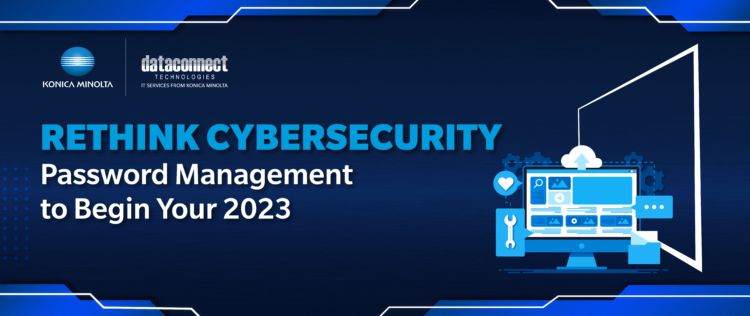As the year 2023 welcomes new beginnings and opportunities, people usually look back on the experiences they had in the previous year and start making a list of things to do, behaviors to work on, and new skills to acquire based on what they have learned in the past year.
When it comes to cybersecurity, the same is true. We can improve our ability to defend ourselves against emerging threats by improving on what we have learned during the previous year.
Below are some recommendations for actions you may take to increase your cyber preparedness and secure your information in this current digital landscape.
Avoid Unsafe Password Practices
In 2023, one of the most important practices in data security will still be good cybersecurity. Using passwords such as 123456, PASSWORD, and 111111 are typical cases of poor password hygiene that can endanger user data and account control. According to NordPass’20, the first of the world’s twenty most common passwords in 2022 was “password,” and hackers cracked them in less than a second. The same goes for the second and third most common passwords: “123456″ and “123456789”, respectively.”
Click here to read more about the most common passwords of 2022.
Here are some simple steps you may take to improve your cybersecurity if you find yourself in the same situation.
- Use lengthy and intricate password combinations. They must contain all four-character types—uppercase and lowercase letters, numerals, and special characters—and be at least twelve characters long. If a long password is properly created, it will provide better security than a short one.
- Avoid using the same password to secure your important data. Make sure each of your critical accounts has a different password (i.e., email and online banking). Using the same password for all of them at once puts you in a vulnerable state that hackers can easily attack.
- Do not compromise your security by using personal information such as your name, birthday, pet’s name, and address. Hackers can easily gather this information and use bots to crack your password.
- Make sure no one is observing you when you input your password by taking a quick look around. If someone is, ask them to turn their gaze elsewhere.
- Avoid using the same password repeatedly and change your passwords regularly.
- Never reveal your password to anyone unless necessary.
- Always Select Never. When your Internet browser requests permission to save your passwords, always choose “never.”
Implement 2FA or MFA
It only takes a single step to set it up, but it can make hacking into your accounts quite difficult. Implementing 2FA or MFA offers greater security. Multiple cyberattacks, including phishing, brute force, man-in-the-middle, credential stuffing, and keylogging are addressed by MFAs. Being meticulous is better than being complacent with your single password when it comes to securing your sensitive information.
Check Passwordless Authentication
Your cybersecurity can be strengthened by using strong passwords and 2FA Two-Factor Authentication or MFA Multi-Factor Authentication methods. But the entire industry has also been collaborating to develop technology like passwordless authentication to make it even simpler and safer to use.
Stop Oversharing Personal Information
Every social media post and image might have crucial details that could be used for social engineering. Sharing too much information on social media might put you in a precarious state. Hackers might discover your interests, profession, activities, and other facts by looking at your social media pages. To avoid being the next cyber victim, be careful of what you usually share on social media.
Maintain Device Updates Regularly
To resolve known vulnerabilities, keep an eye on the latest versions of your operating system and applications and install them as soon as they are made available. Keeping your devices updated can help safeguard your sensitive data from potential cyberattacks.
Backup Your Valuable Information
Even the cybersecurity measures mentioned above are not flawless. Your data is not completely safe, even if you follow all the rules. Software frequently has undiscovered flaws, and even the most secure systems can occasionally be breached by well-known hacker groups. Implementing backup solutions will help you secure your essential data.
Final Thought
It is already 2023 however cybersecurity remains a top priority. Cyber attackers are equally adept, tactful, and resourceful. Hence, it is also our responsibility to strengthen and secure our digital security. Passwords must be strong and complex and adhere to best practices for password policies. A company name, a phone number, an account name, or a pet name should not be used as the password. Additionally, it is advised that the newly formed password is different from the one that was previously established, and checking the current trend for securing your digital accounts, such as Passwordless Authentication and 2FA or MFA will fortify your defenses against cyber threats!
Start the year stronger. Do not let weak passwords ruin your year!
Data Connect Technologies Pte Ltd is a dynamic ICT and Services Provider with over 19 years of experience in providing excellent IT support to companies all over Singapore.
